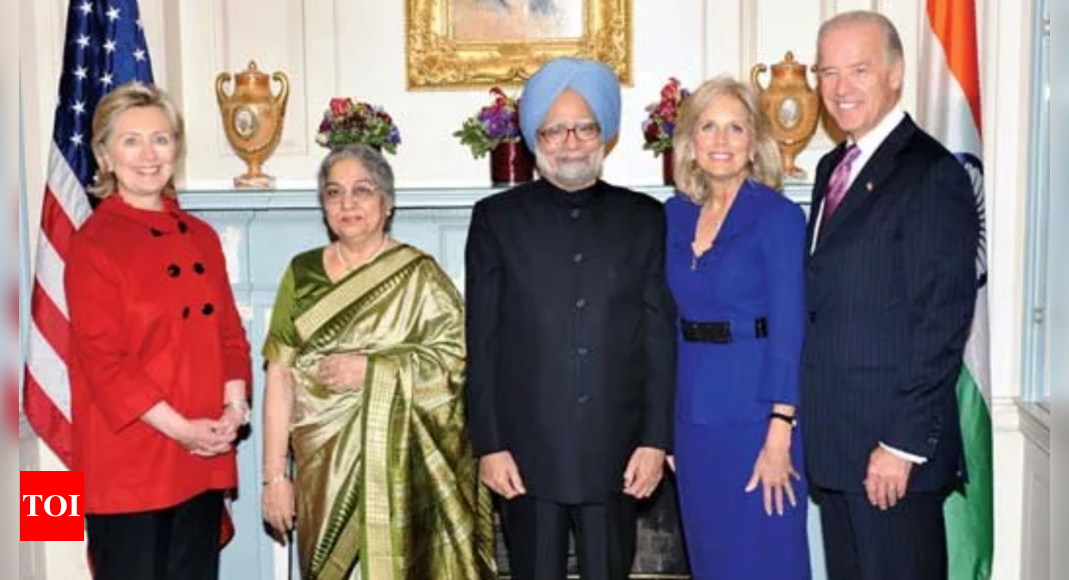NEW DELHI: The White House on Saturday issued a statement from US President Joe Biden, expressing his condolences on the death of former Prime Minister Manmohan Singh, who died on Thursday night at the age of 92. Singh, widely regarded as a transformational leader and the architect of the economic liberalization. He served as Prime Minister for two consecutive terms, from 2004 to 2014.
“Jill and I join the people of India in mourning the loss of former Indian Prime Minister Manmohan Singh,” President Biden said. “The unprecedented level of cooperation between the United States and India today would not have been possible without the Prime Minister’s strategic vision and political courage. From forging the US-India Civil Nuclear Agreement to helping launch the first Quad between Indo-Pacific partners, he charted groundbreaking progress that will continue to strengthen our nations – and the world – for generations to come.”
Biden described Singh as “a true statesman, a dedicated public servant and, above all, a kind and humble person.” Recalling his personal interactions with Singh, Biden pointed to their meetings during Singh’s tenure. “I had the opportunity to meet Prime Minister Singh as Chairman of the Senate Foreign Relations Committee in 2008 and as Vice Chairman during his official state visit to the United States in 2009. He also graciously received me in New Delhi in 2013. As we discussed “So the relationship between the United States and India is among the most important in the world, and together, as partners and friends, our nations can unlock a future of dignity and unlimited potential for all of our people.”
“And Jill and I send our deepest condolences to former first lady Gursharan Kaur, her three children and all the people of India,” Bided added.
Singh, known for his landmark 1991 reforms under Narsimha Rao, which opened India’s economy to global markets and dismantled the License Raj, a system that had long hampered economic growth.
As Prime Minister, Singh led the country through a decade of transformative changes, making his tenure the longest after Jawaharlal Nehru and Indira Gandhi among Congress prime ministers.
His leadership was marked by the introduction of landmark laws such as the Mahatma Gandhi National Rural Employment Guarantee Act (MGNREGA), the Right to Information Law (RTI), and the Right to Education Law (RTE), which significantly impacted millions of lives.
Singh also had a distinguished career as a bureaucrat. He served as Governor of the Reserve Bank of India from 1982 to 1985 and was honored with the Padma Vibhushanthe second most important civilian award, in 1987.
Singh retired from active politics earlier this year, concluding an illustrious 33-year tenure as a Rajya Sabha member.




